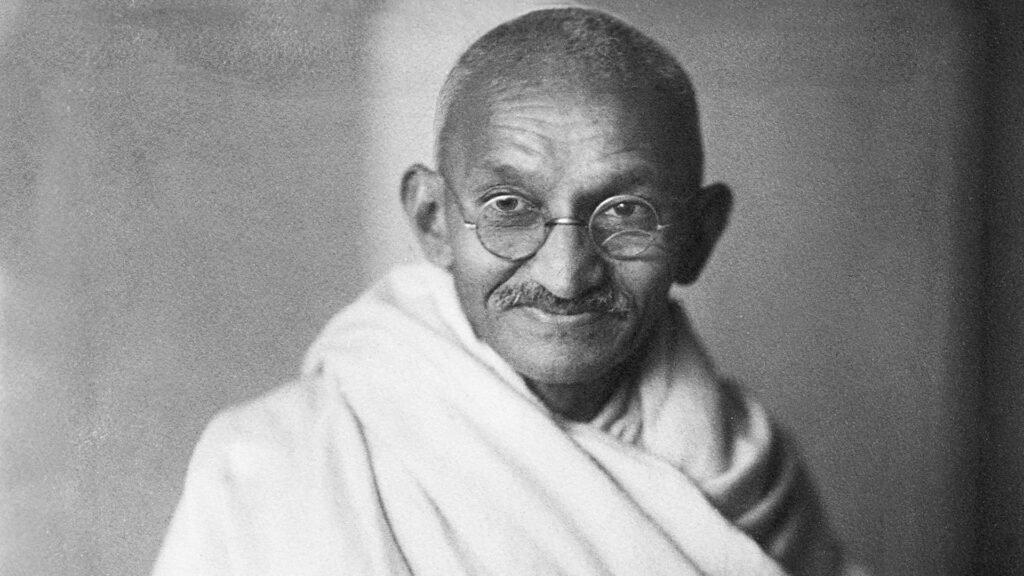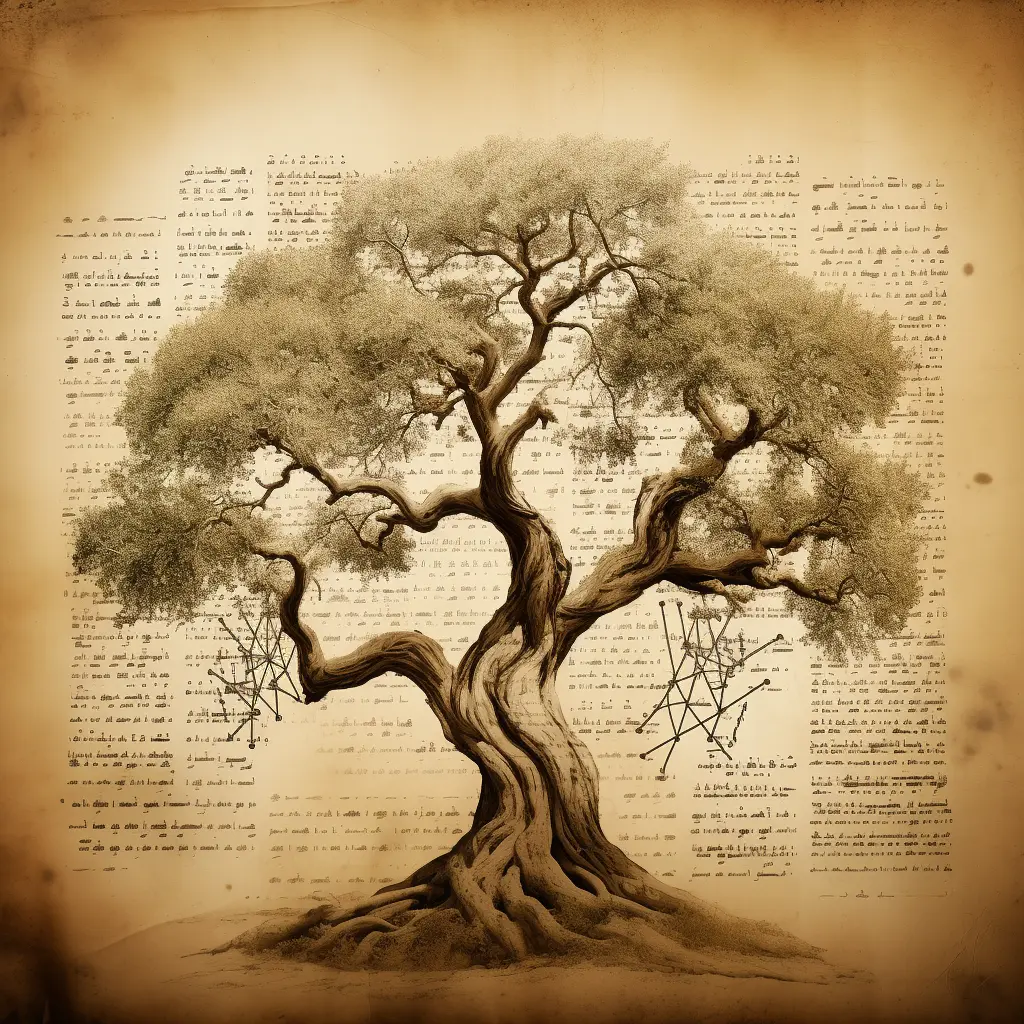
Brief introduction to Mahatma Gandhi
Mahatma Gandhi, fondly called the ‘Father of the Nation’ in India, was a trailblazing figure of the 20th century. Often clad in a simple cotton dhoti, his unassuming exterior belied a fortified resolution, which steered India towards its cherished freedom from the clutches of British rule. Gandhi’s pacifist ideologies continue to reverberate globally, inspiring civil rights movements even today.
The obstacles Gandhi faced
Mahatma Gandhi, a revered figure in the annals of history, wasn’t immune to challenges. His path towards India’s independence was marked with numerous obstacles-from racial discrimination to political opposition and imprisonment. Despite these constraints, his indomitable spirit made his journey a tale of unshaken resilience. This blog post ventures to explore those challenges and adversities.
Gandhi’s Early Life and Challenges
Gandhi’s childhood and adolescence obstacles
As Mohandas Karamchand Gandhi embarked on his journey of life, he faced adversities during his childhood and adolescence, which shaped his adulthood. Born into a politically-active family in British-ruled India, Gandhi faced Poverty, as his family wasn’t financially affluent. He was married when he was barely 13, forcing him to grapple with the responsibilities of marriage at an early age.
Gandhi also struggled with academics, barely passing his matriculation examinations. He had a challenge understanding English, a language he found terse and abstract, which proved to be an obstacle in his early years of education. These challenges instilled perseverance and resilience, shaping his future course permanently.
Read: Is Pablo Escobar’s Wife Still Alive?
Racial discrimination in South Africa
In the early years of the 20th century, young Mohandas Karamchand Gandhi faced deep-seated racial prejudice that would significantly shape his life. While he ventured to South Africa for legal work, he encountered an unwelcoming social climate marked by racial segregation and blatant discrimination.
Whether it was being thrown off a train due to his ethnicity or experiencing public humiliation because of his skin color, Gandhi’s experiences were far from what he had envisioned. Though challenging, these brutal encounters served as a tipping point for Gandhi’s metamorphosis into a potent resistance leader, ultimately shaping the course of his struggle for equality.
Encountering caste discrimination
Born into a highly influential Gujarat-based family, young Mohandas Karamchand Gandhi was initially shielded from the bitter realities of India’s caste system. However, as he grew older, he began to confront its oppressive workings. Among the most arduous challenges he faced was witnessing the debilitating discrimination against the ‘untouchables’.
The degrading inhumane treatment they received was a shock to his core. He was disheartened by the suffering inflicted by caste-based hierarchies—a socio-political struggle utterly at odds with his principles of equality and human dignity. This despair eventually inspired him to fight against such social evil, a battle he unanimously won, changing the status quo forever.
Political Struggles
Opposition from the British government
Exploring the spectrum of Gandhi’s political battles, immaculate attention is drawn to the monumental opposition he faced from the British Government. Champaran and Kheda Satyagrahas are glaring instances of this struggle. Much like an unyielding boulder against the relentless waves of the ocean, Gandhi remained resolute despite the curveballs thrown at him by the colonial rulers. They concocted numerous tactics, unflinching in their desire to suppress his momentum. Perseveringly, he jumped every hurdle – from hurtful personal attacks to imprisonments.
His idea of ‘Satyagraha’ or non-violent protest kindled a sense of fear and threat in them as it was unprecedented, challenging their very ethos of rule. Particularly, his attempt to undermine the British salt monopoly with the Civil Disobedience Movement caused significant unease. However, his unwavering resolve and immense courage not only bypassed these roadblocks but also proved instrumental in dismantling the very foundations of the British rule in India.
Dissent within the Indian National Congress
Among the challenges Mahatma Gandhi faced, disagreements and opposition within his own party, the Indian National Congress, were significant. Despite his significant influence, his pacifist philosophies didn’t always resonate with colleagues. The rise in communal violence and the partition of India often led to contentious debates. Some key figures like Subhash Chandra Bose sought more assertive action, leading to deep divisions within the party. These intra-party conflicts did not deter Gandhi but actually invigorated him in his quest for unity and peace against all odds. Indeed, his ability to continue pushing for his vision, despite opposition from his comrades, exemplifies his enduring resilience.
Religious tensions and partition of India
In the realm of Gandhi’s political battles, a vital challenge was managing religious tensions and the ensuing partition of India, viewed as one of the most intense periods of his life. Gandhi fervently sought to unify India, comprising diverse religious and cultural factions which had historically sowed seeds of discord. Predominantly between Hindus and Muslims, these heightened tensions threatened the common unified front Gandhi envisioned.
The contentious decision to partition, essentially severing India to create the new state of Pakistan, was a severe blow to Gandhi’s dreams of unity. This heartbreaking separation ignited a spiral of violence and migration, creating an extraordinarily volatile situation. Gandhi was tasked with not only attempting to quell the disquiet but also pacifying the hurt sentiments of both groups. This multidimensional challenge serves as a stark reminder of the colossal obstacles Gandhi faced while striving to achieve his vision of a united India.
Read: Did Isaac Newton Invent The Cat Door?
Personal Obstacles
Gandhi’s principles and personal disputes
Among the numerous hurdles that Gandhi maneuvered, personal disputes and adherence to his philosophies presented distinct challenges. Renowned for propagating non-violence and satyagraha, his tenets often clashed with his contemporaries’ preference for a more aggressive activist approach, causing significant dissension.
Moreover, his steadfast commitment to poverty and chastity provoked personal obstacles, inadvertently alienating his family. Compelled to live in accordance with his beliefs, Gandhi inadvertently waged battle against societal norms and even intimate relationships, proving the pursuit of his peace-driven mission was no straightforward feat, but rather a formidably complex human endeavour.
Experiments with truth: personal challenges
Gandhi’s path towards iconic status was not without hurdles. His journey was riddled with numerous personal predicaments. He faced ridicule and backlash from his own community when he decided to purify himself, casting aside his longing for material things and adopting vegetarianism, celibacy, and truthfulness. This was a part of his ‘Satyagraha’, the pursuit of truth. Equally challenging was the strain his fervor for social and political reform put on familial ties, particularly with his wife, Kasturba, and his sons. The strength to remain resolute in his beliefs despite mockery and misunderstanding was one of Gandhi’s most significant personal battles.
Assassination Attempt
Even Gandhi’s own life wasn’t exempt from danger, as he faced multiple assassination attempts. The most well-known, of course, culminating in his untimely death in 1948, but lesser known are the prior attempts on his life. From as early as 1934, Gandhi’s ideological leanings and unwavering commitment to India’s Independence and societal reform attracted hostility.
His peacemaking efforts, though largely celebrated now, were met with resistance, provoking anger and dissent amongst hardliners who saw his actions as a betrayal to their communities. His strength lay in his steadfastness, his unfaltering commitment to non-violence and truth, even when questioned or threatened. The danger inherent in his position was ever-present and palpable, yet it didn’t deter him from his path. He navigated this shadow of mortal peril by remaining steadfast in his principles and withstanding the building pressure with grace and conviction.
These attempts on his life were truly a testament to his consistent courage and resilience, and serve to underscore just how significant the obstacles were that he faced on his journey. These tumultuous circumstances surrounding Gandhi paint a vivid picture of the unceasing struggles in his pursuit of peace and independence.
Conclusion
Gandhi’s legacy despite the obstacles
In concluding, Gandhi’s journey was not without arduous hurdles and colossal tribulations, but his legacy shines as a beacon of hope amidst adversities. The political resistance he faced within his homeland, Indian, and the wall of racism that confronted him in South Africa never deterred him but strengthened his resolve, breathing life into his philosophy of non-violent resistance. Despite the bitter blows of many defeats, his vision was not blurred; instead, he chiseled his way out, shaping two nations’ political frontiers.
Imprisonment, defamation, or attempts at his life couldn’t tarnish his belief in fighting for truth and justice. Today, as we embrace his ideals of peace and non-violence in a world consumed with raging conflicts, it bears testament to his courage and wisdom that shone bright, tearing through harsh obstacles. Remarkably, his moving spirit still ignites revolutions, reaffirming the phrase, ‘In the face of impossible odds, people who love their country can change it.’
Lessons from Gandhi’s resilience
In conclusion, Gandhi’s life has taught us much about rising above adversity. His endeavors were besieged by enormous difficulties and resistance from several fronts. He faced challenges not just from the oppressive British regime but also from his own compatriots who didn’t always see eye to eye with his principles of non-violence and passive resistance. His resilience in the face of imprisonments, relentless criticism, disparagement and even physical assaults is a testament to his extraordinary inner strength.
Gandhi’s vision and indefatigable spirit saw him continue his struggle for India’s independence despite the odds stacked against him. More than anything, he exemplified the power of perseverance and unshakeable faith in one’s values and convictions. Drawing inspiration from Gandhi, we learn that any objective, no matter how daunting, can be achieved through unwavering commitment, sincerity, and moral courage.



